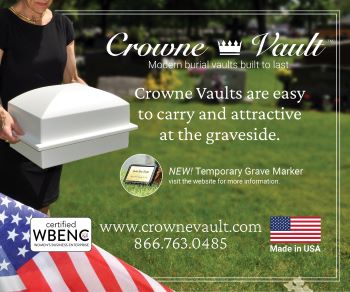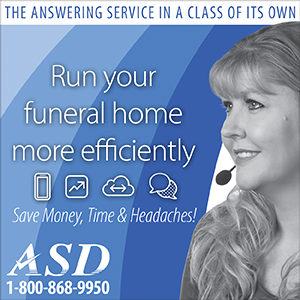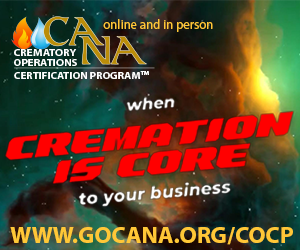What are the consumer trends
 I left full-time employment in the funeral profession at the end of the 2013 calendar year. At that time I was aware of a young, emerging company called Passare, whose web-site you can see here. What I remember of Passare is that, I believe, it was a product of Funeral Directors Life Insurance Company (FDLIC) and was a technology that was meant to improve funeral directors performance during arrangement conferences.
I left full-time employment in the funeral profession at the end of the 2013 calendar year. At that time I was aware of a young, emerging company called Passare, whose web-site you can see here. What I remember of Passare is that, I believe, it was a product of Funeral Directors Life Insurance Company (FDLIC) and was a technology that was meant to improve funeral directors performance during arrangement conferences.
If you go to their web-site you will see that today they are much more than I remember them. That is not surprising. . . there have been incredible technological advances in that time, funeral directors and their businesses have became more tech savvy and welcoming, and, well, it’s been seven years.
I don’t know if Passare has increased their marketing budget or just got hold of my e-mail address, but lately I’ve been receiving a lot of information about the company. It led me to go to their web-site to check them out. I’m not going to give you a run down on what they could do for your funeral home business with this article but I am going to talk about one aspect that I read about on their web-site.
While perusing the Passare web-site I came across this article entitled, “The Six Types of Funeral Consumers“. I found it fascinating and something I was surprised that I had not come across before. It is a short read and I would suggest you read it.
In essence, the article brings you back to a time almost a decade ago when a market research firm was asked to identify funeral consumers , consumer behaviors, and market preferences. They interviewed over 3000 individuals to come up with personas of “funeral consumers”. The article describes these personas in more detail, but I’ll give you my brief explanation of the six types of funeral consumers they found. And, just for simplicity sake, I would argue that “funeral consumers” is equivalent to “death care consumers” for this article’s purpose.
- Pine-Boxers: The “just bury me in a pine box” consumer
- Funeral Friends: Willing to spend more. Religious and attend church.
- Polite Farewells: Naturally caring. They put desires of family and friends over their own. Married with children.
- Dead-Enders: Predominantly male. Look for the cheapest option available.
- Solo Secularists: Highly educated. Environmentally conscious. Does not see a need for a funeral home. Prefer cremation.
- Click & Callers: Prefer do-it-yourself methods. Use the internet to find the answers needed to do so. May be a religious element, but also tend to be highly customized.
So, if you’ve been a funeral director for any length of time, you probably can recall making arrangements with each of these types of consumers. I know that I can.

Tom Anderson
Funeral Director Daily
What I find most interesting, however, is that, according to the article, the marketing company explained that of these six death care consumer types, some of the consumer types were declining and some of the types were growing. And, in my opinion, it is this growing/declining phenomena that is what is producing the change in death care services in the United States and it is important for your firm to understand that if you are to grow and not decline.
From the article’s point of view, they argue that Pine-Boxers, Funeral Friends, and Polite Farewell consumers are declining in the population while Dead-Enders, Solo Secularists, and Click & Callers are growing.
If your providing and advertising services to a population that is declining, well, I’m guessing your clientele and business will decline also. There is ample evidence in American business history of companies that did not keep up with the consumer. . . and those companies are gone today.
From this article I take home pretty simple advice. . . . know who your customer is.




















